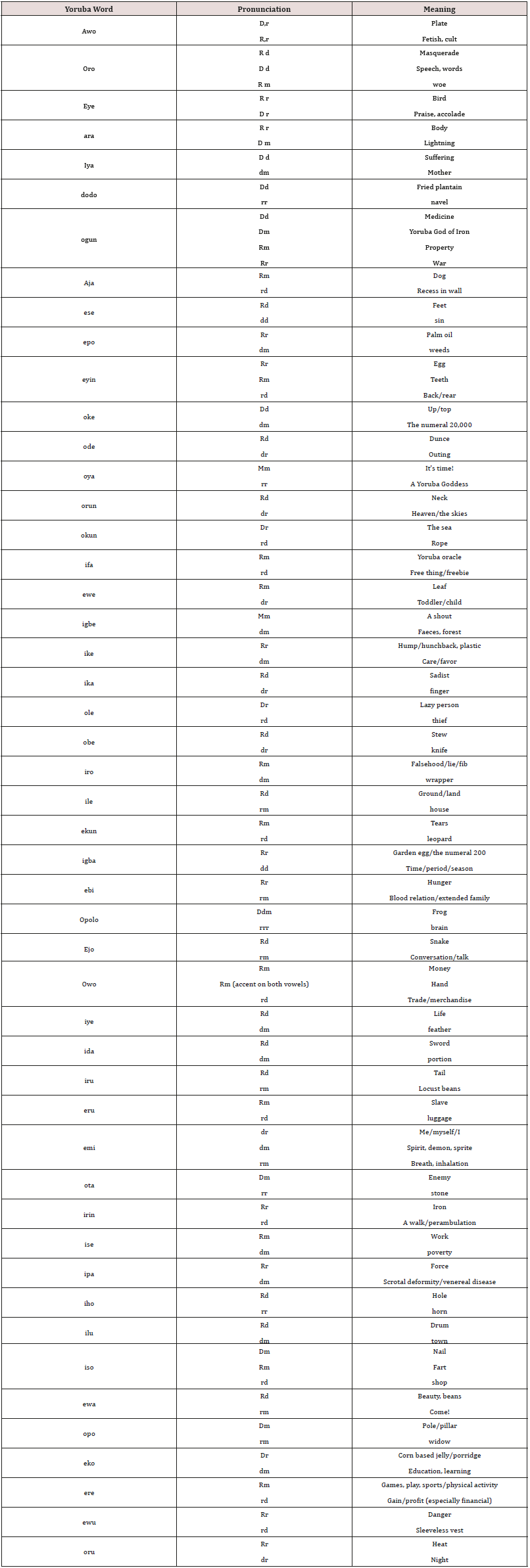Lupine Publishers | Journal of Forensic & Genetic Sciences
Introduction
In linguistics, words that have the same spelling but have different meanings when pronounced differently are called homographs, heterephones or heteronyms [1,2]. Apart from English, Dutch and a few other Indo-European languages, few other languages on earth-apart from Yoruba have so many heteronyms. And given that many of the English heteronyms are merely verb and noun heteronyms (e.g. the noun ‘house’ means an actual structure for domicile while as a verb to ‘house’ means to provide said domicile and/or place person(s) therein) the number of spoton English heteronyms falls significantly. Also, many English and Indo-European language heteronyms come in pairs e.g. ‘confine’ as a noun means a boundary or limit while ‘confine’ as verb means to restrict. On the other hand, many Yoruba heteronyms came in trios, quartets, quintets and in rare cases septets such as the word ‘OKO’ which, depending on the pronunciation means spear, penis, farm, vehicle, husband, stone and hoe! [3] This is seven meanings for just one word merely by varying the pitch! It’s time for linguists worldwide to stop burying their heads in the sand and to do the honorable thing-officially reclassify Yoruba as a language isolate.
More examples of Yoruba homographs and heteronyms include the following: kindly note that the alphabet ‘d’ stands for the sound ‘do’, ‘r’ stands for the sound ‘re’ and ‘m’ for ‘mi’ (Table 1). This list of Yoruba heterophones is by no means exhaustive. But these are enough for any fair-minded and reasonable observer to strongly suspect, if not conclude that Yoruba is a language isolate [3].
https://forensic-journal-lupine-publishers.blogspot.com/


No comments:
Post a Comment
Note: only a member of this blog may post a comment.